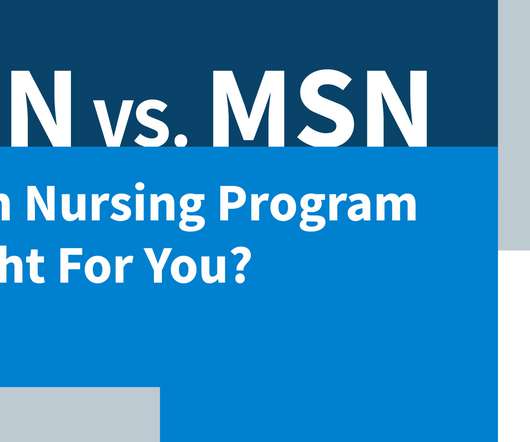How to Become a Registered Nurse
Post University
DECEMBER 15, 2023
Their scope of practice is limited to basic patient care, such as monitoring vital signs, cleaning and wrapping wounds, inserting catheters, bathing and dressing patients, and communicating updates about the treatment plan to patients and families. Certified Nurse Assistants: How Do They Differ From Registered Nurses?












Let's personalize your content